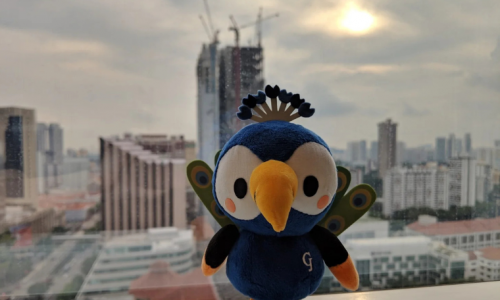In my previous article of this series, I wrote about Grit vs Talent: What’s The Difference and Why Does It Matter? has unravelled what sets apart high achievers and their counterparts and how they exude excellence effortlessly.
In this article, I would like to explain that although we’re all gifted with different talents, born with different genes and into different family backgrounds, these should never be the deciding factors of one’s success.
The journey to excellence is a road less travelled, and not many are resilient enough to stay on that path. But there’s always a small group of people who do, those are the ones who took the time to figure out their interests and stuck to them with deliberate practise. They are the grittier ones.
Defying all odds with Grit

Have you ever wondered how Chairmans, C.E.O.s, and Directors of a company get to where they are? What about those colleagues of yours who get yearly promotions, and exude nothing short of excellence? You can’t help but wonder out loud if you had half their brains, genes, support system or even their degrees…perhaps you might be in the same position.
There was a period of time when academic performance was the determining factor to what higher education one pursues and in return, which career they end up in. Parents with financial means were able to afford extra tuition and enhancement activities, providing their children with a head start in life, while the rest with less were placed at a disadvantage.
But, there were also countless stories of children who defied all odds despite their limited resources and poor living conditions, pushed through with grit and created something out of nought, the unwillingness to allow their circumstances to define their future. They changed their destiny.
Rewiring your mindset and changing your perspectives on how you perceive difficult circumstances and limitations determines the actions you’ll take.
Interest: How it all begins
Contrary to popular beliefs, personal interests do matter—it’s what starts your job search, and what you ultimately decide to settle for, it also influences how you perform on the job.
Not everyone has the luxury of choosing from an array of occupations. Circumstances prevent most from doing so, and the rest take what they can get just to get by. And while we may envy those who proclaim they love their jobs, we shouldn’t be too quick to assume they have started from a different place.
Here’s the thing: Interests are not discovered through soul-searching, instead, it’s sparked by interactions you make with the outside world.
Before hard work, comes play—it’s something fundamental that’s long forgotten. Long before committing to the ‘real deal’, you should go about experimenting and get your hands dirty in everything you find yourself drawn to because you’ll never know what you may find.
It is only through experimenting, you’ll eventually figure out the interest that sticks, and eliminate the ones that won’t. And when you decide on what you intend to pursue long-term, don’t be quick to abandon the pursuit that you chose to invest in.
Take a marriage commitment for example. After some time, romantic feelings between the couple eventually fade. But we both know that what keeps the marriage going is the effort invested by both parties that keeps it going.
Just like interest, it must be triggered over and over again, exercise patience to see it develop into something great and keep showing up.Because falling in love is one thing, sticking with it is another.
Always be bold and ask plenty of questions, seek those who share the same interests and goals, build meaningful relationships, and get a mentor with expertise to lead, challenge and encourage you.
Expect growth in your knowledge, expertise and skill and don’t be afraid to put them to the test. Be hungry for more.
Practice: A cure to your Achilles’ heel

Practice is an assiduous desire to do better. It resides in the minds of optimists who only look forward and want to grow further. Management consultant expert, Peter Drucker suggests to be effective is to “concentrate on the few major areas where superior performance will produce outstanding results…“
Grit isn’t purely devoting a large quantity of time to your passion and interests, it’s the quality of time—it’s what you do with your time and to focus on the things that bring you one step closer to your goal.
A simple illustration is this: Remember when you had your first bike ride, you had exactly four wheels, including those pesky training ones you despise so much the second you get the hang of riding.
But then, dad tells you that you’re not quite ready and that you need to work on your posture and stability, and especially to keep your eyes peeled on the road ahead. Once the training wheels are off, you’re riding freely. And one fine day, on your usual bike ride, in an effort to avoid some crazy cat that sprung past your lane, you hit the brakes a little too hard and fell from your bike.
What do you do then? Get up, keep riding or give up bike riding altogether for the fear and pain it caused you?
The first half of the illustration shows that we all start somewhere and from the bottom. The training wheels are the resources we have, the knowledge we acquire as we deliberately practise.
Soon, you’re riding with ease, there’s a certain flow—a feeling of spontaneity that comes with it. You feel exhilarated because you know all that hard work has finally paid off, and your work is bringing you to places you never thought you could go.
But success is hard-earned and it’s not in the absence of challenges and setbacks—those things come at you unexpectedly (like that cat). You break down, your ego gets bruised and you feel demotivated, but remembering why you got started in the first place gets you back up and to keep going.
Learn to embrace the failures and setbacks instead of shunning away from them. Make it teach you how to improve your pursuit of success and keep moving forward.
Consider another story of the famous inventor Thomas Edison who invented the lightbulb. No one expected to see him go far in life. In school, teachers labelled him stupid, at work, well, he was fired from multiple jobs.
But what’s intriguing was how determined he was to not let failure and people define his worth and future. This man clearly knew what he wanted and went pursuing it. Edison was a great example of grit and resilience.
His interest lay in inventing, and he certainly put it to work. He relentlessly improved one failed lightbulb to the next, figured out what went wrong and changed his tactics, and after what seemed like forever, he succeeded. So, imagine if Edison had given up on his second or third try, the course of history in this modern lifestyle would forever be altered.
Your interest is what gets you to the starting line, but deliberate practice, resilience and grit are what get you to where you want to be.
Written & Illustrated by Destiny Goh
Marketing Communications Executive





